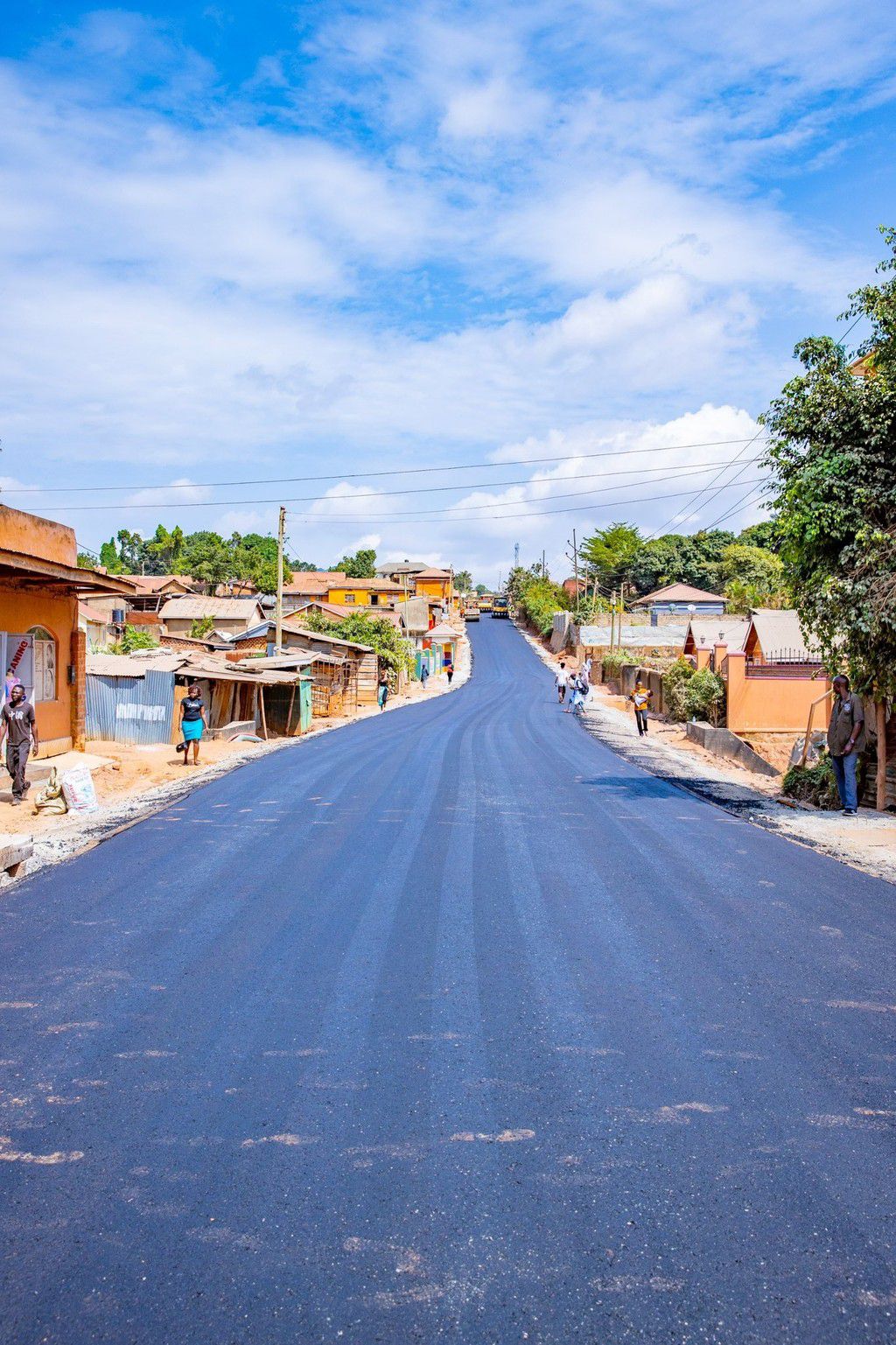Kampala, Wakiso, Mukono roads to be tarmacked listed
)
A Strategic Vision for Urban Development
The GKMA, comprising Kampala City and surrounding districts like Wakiso, Mpigi, and Mukono, plays a critical role in Uganda’s economy, accounting for nearly half of the country's GDP. However, rapid urban expansion has outpaced infrastructure development, leaving many areas with inadequate road networks, drainage systems, and waste management services.
To address these challenges, the GKMA-UDP was launched with a vision to develop resilient and climate-friendly urban infrastructure.
According to the State Minister for Kampala and Metropolitan Affairs, Mr. Christopher Kyafotagabye, the program will focus on improving mobility, accessibility, and environmental sustainability in the GKMA. The five-year project is expected to transform the region into a well-coordinated urban area that fosters economic growth and enhances the quality of life for its residents.
Key Financing and Infrastructure Goals
The GKMA-UDP benefits from significant financial support, including a $518 million credit facility from the World Bank, a $48 million grant, and €40 million in co-financing from Agence Française de Développement (AFD). The Government of Uganda is also contributing to the program’s budget. This funding will be directed toward critical infrastructure investments, with road rehabilitation being a top priority.
Through the innovative Program-for-Results (PforR) financing model, the disbursement of funds is linked to achieving specific performance targets set for each participating entity. The first phase of the project, launched in December 2023, will see the rehabilitation of roads in Kira and Mukono municipalities, with other municipalities set to follow in the coming months.

Roads to Be Tarmacked in Kampala and Beyond
One of the primary focuses of the GKMA-UDP is improving road infrastructure in Kampala City and its surrounding municipalities. In Kampala, 13 key roads have been identified for rehabilitation under the program. These include:
- Ben Kiwanuka
- Rashid Khamis
- Old Kampala Ring/Matia Mulumba
- Muganzilwaza
- Mukalazi
- Kira Road
- Katalemwa
- Kigobe
- Bemba
- Kyebando
- Nsambya Estate
- Cape Villas/Wavamunno
- Ntake Road Master
In Nansana Municipality, six roads will benefit from the project, including:
- Nansana – Wamala Katooke
- Maganjo Jinja Kalori Link
- Katooke – Nabweru Link
- New Era – Lugoba Link
- Nansana – Nabweru
Eight roads will be covered in Ssabagabo Makindye Municipality, with the following among those to be refurbished:
- Lubugumu-Busabala Link (and two extensions)
- Lubugumu-Kakora
- Kibutika (two sections)
- Namasuba Para Link
- Nakayenga
In Wakiso District, roadworks will cover several important links, such as:
- Kisozi-Kitemu/Nagalabi Spur
- Bweya-Namulanda Links
- Bukasa-Sentema-Kakiri Road
In Entebbe Municipality, the following roads have been selected for improvement:
- Kitooro-Kiwafu II
- Nakiwogo Road
These roads were selected based on the need to improve mobility and accessibility within the metropolitan area, which is crucial for facilitating economic activity and reducing traffic congestion.
Climate Resilience and Job Creation
In addition to road rehabilitation, the GKMA-UDP is designed with climate resilience and sustainability in mind. The project will include the installation of stormwater drainage systems, the development of green spaces, and the promotion of non-motorized transport options such as walkways and cycle lanes. By reducing the risk of flooding and minimizing greenhouse gas emissions, the program aims to create a cleaner, more sustainable urban environment.
Job creation is another key objective of the program. The development of roads, markets, and business centers will provide employment opportunities for youth and women, helping to boost local economies. In this regard, artisan parks and small business centers will be developed to support vocational training and entrepreneurship.
A Step Toward Uganda’s Vision 2040
The GKMA-UDP is aligned with Uganda’s Vision 2040 and the National Development Plan III, both of which emphasize the need for sustainable urban development. By improving road networks and addressing other urban challenges, the program aims to create a more livable and economically vibrant Kampala Metropolitan Area.
As the program enters its next phase, contracts have already been signed with Kira and Mukono municipalities, and tenders for additional roadworks in six other entities have been advertised. Construction is expected to begin in January 2025, with the government keen to complete over 140 kilometers of road network within the first two years.
The Greater Kampala Metropolitan Area Urban Development Program represents a significant investment in Uganda’s urban future, with the potential to transform the country’s largest metropolitan area into a model of resilience, sustainability, and economic opportunity.
)
)
)
)
)
)
)